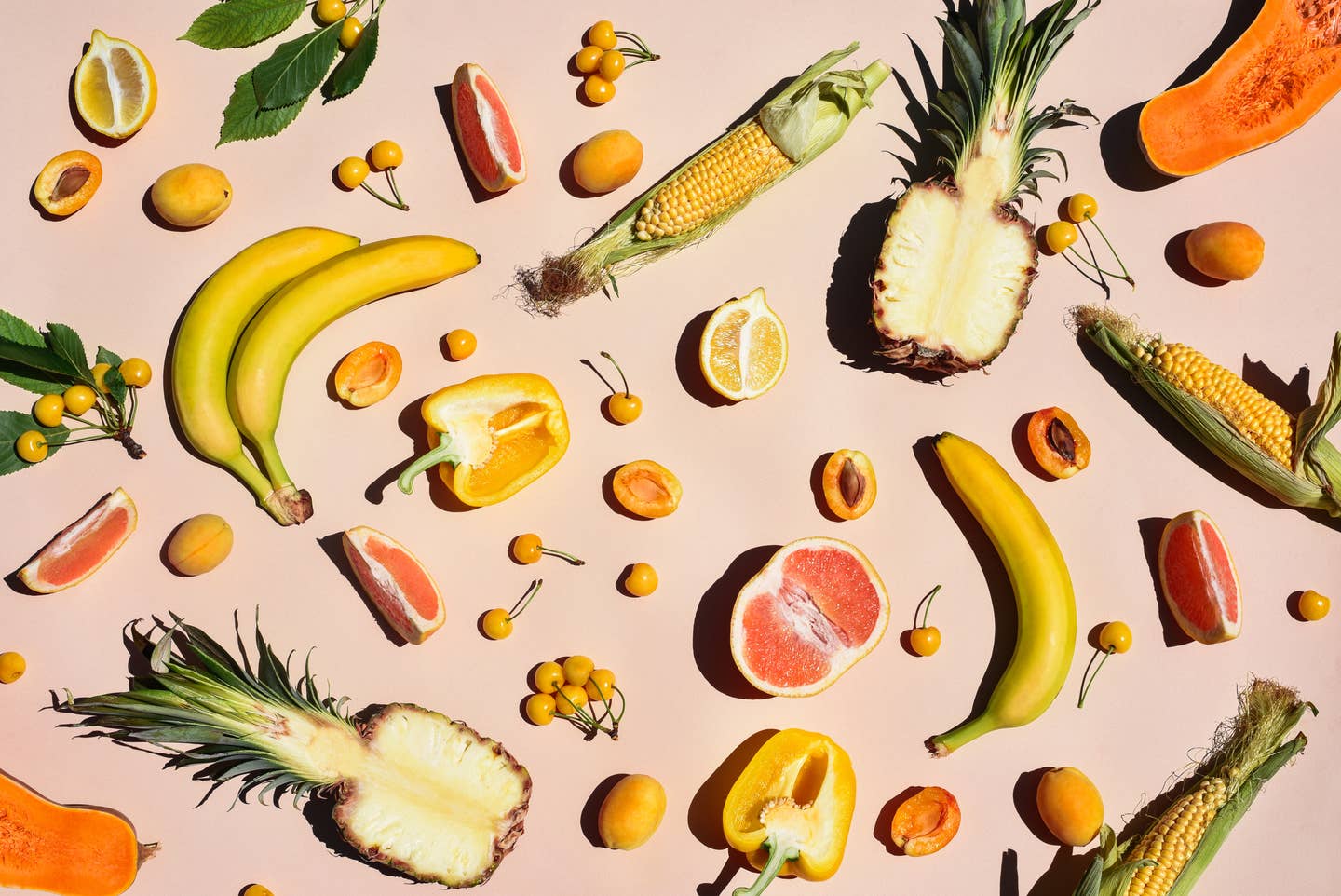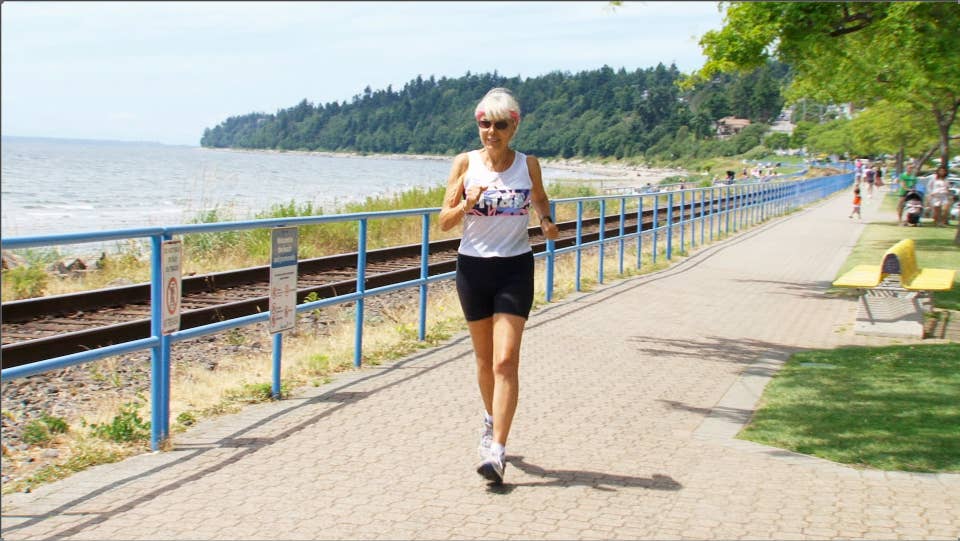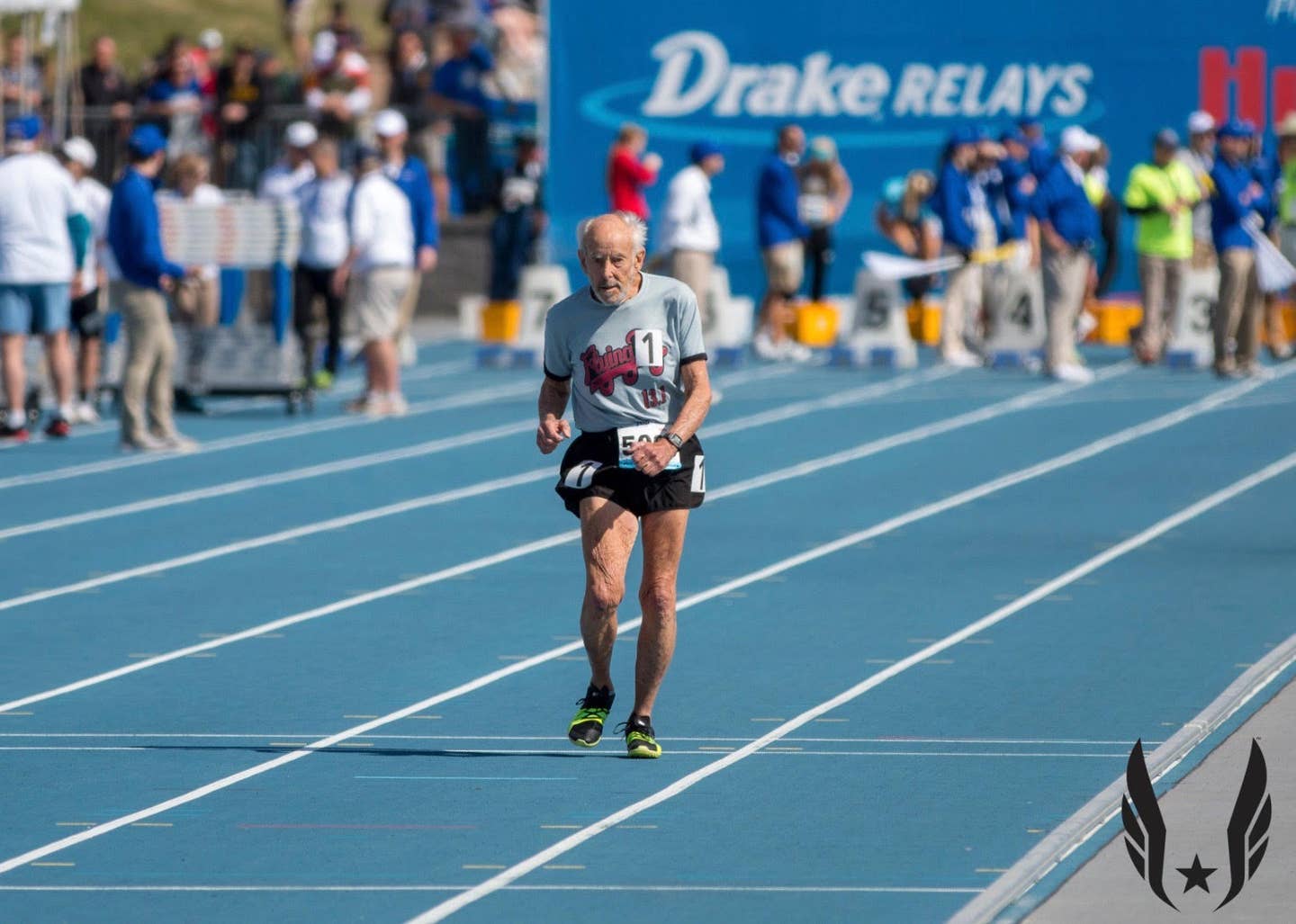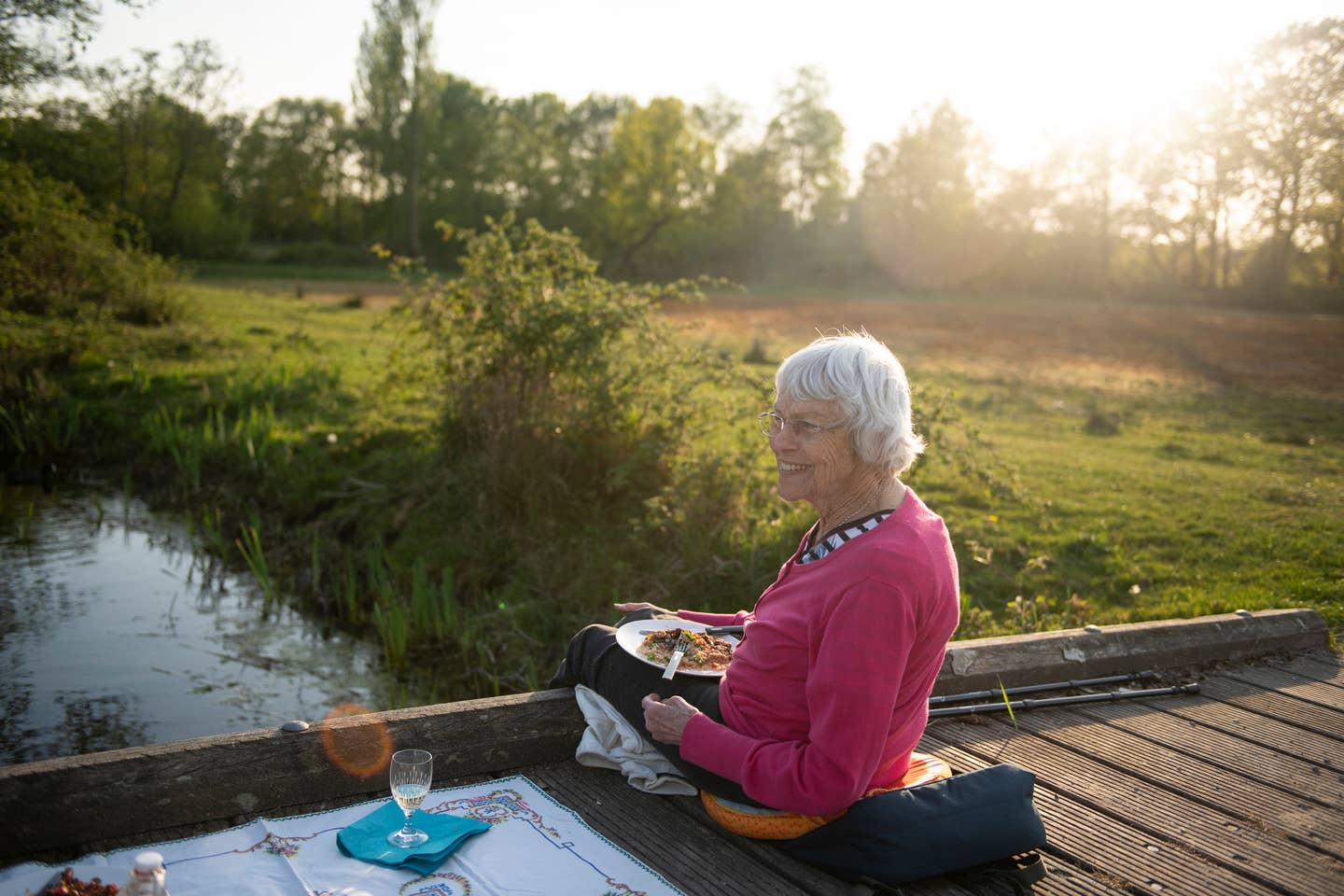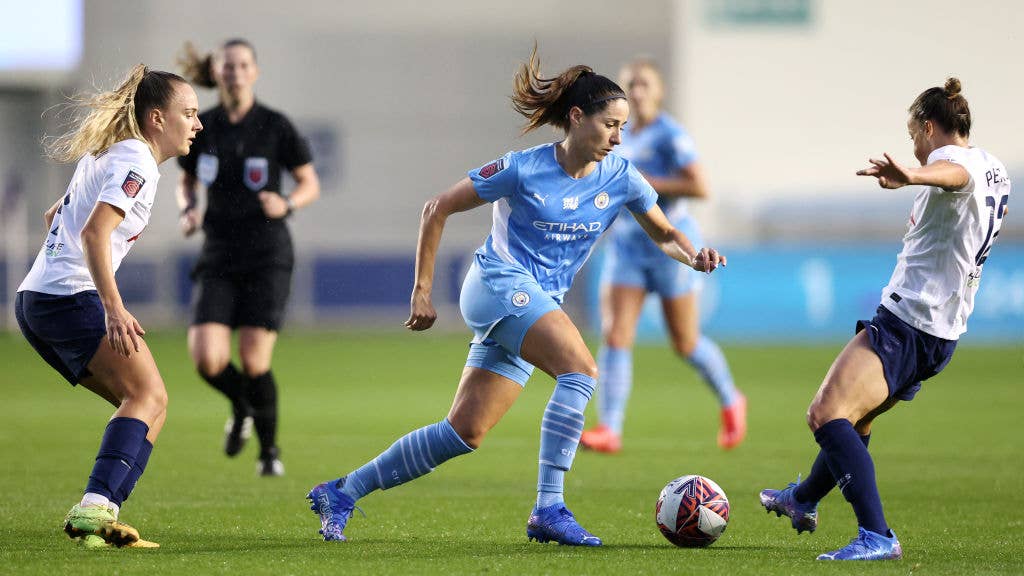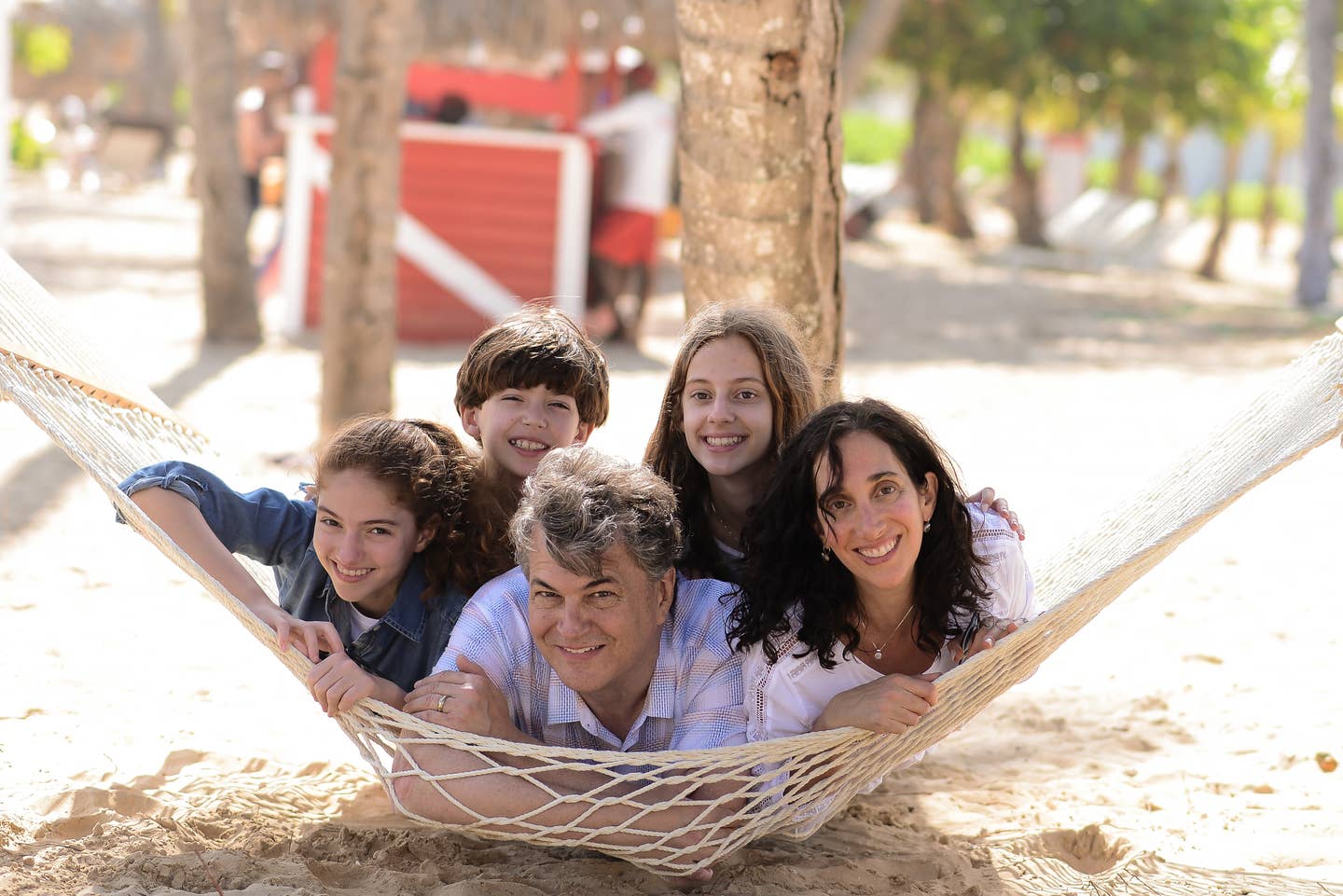
After Cancer, A Plant-Based Diet Helped This Woman Recover and Get Well
Iris Zuckerman, a wife and mother of three, was living her normal day-to-day life, raising her kids in Chicago and working in legal research when without any reason to believe there was anything amiss, she got news from her doctor that a recent mammogram showed cancer. What began as a life-altering diagnosis ultimately led her to adopt a whole-food, plant-based diet, which she says is part of the reason she was able to feel strong during the harrowing journey and ultimately make a full recovery.
It all started in 2012 when Iris got her diagnosis: A mammogram found one small but invasive tumor in her left breast – invasive ductal carcinoma. Her doctors recommended surgery, and various doctors had differing opinions regarding chemo. The idea of following a course of treatment with chemotherapy or radiation set her off on an investigative journey to find natural remedies that would help her get healthier and ease the pain after surgery. Iris was a researcher by nature, and she knew there were options out there beyond what western science has to offer. Ultimately, Iris made the choice to not undergo chemotherapy since she felt a natural path was a better fit for her, and a mammaprint test showed that chemo might not even be as effective on her type of cancer as they would like. Even if the test had shown that chemo would be effective, she felt that it was the wrong direction for her: "I was confident chemo wasn’t the treatment plan for me because it didn’t make sense to destroy my immune system after having surgery when I could find natural ways to help my body prevent a potential metastasis or recurrence instead."
While researching cancer and the role of diet in recovery, she discovered studies extolling the power of plant-based foods and healthy cell growth. She also found the now-well-documented connection between casein, the main protein in dairy, and hormonal cancers such as breast, ovarian, uterine, and prostate. Having been a vegetarian since she was 14 years old, Iris had been eating cheese and milk so she knew it was time to cut dairy from her diet and began to follow a vegan and sugar-free diet.
In January 2013 Iris had her first surgery, a double mastectomy based on doctors' recommendations. "They had also found a micro-metastasis in one of my lymph nodes," which doctors felt did not require the removal of any additional lymph nodes. Just a few months later, in April, she underwent reconstructive surgery and, per the recommendation of her doctor, started taking tamoxifen, a treatment that attaches to the hormone receptors in any remaining cancer cells, blocking estrogen from attaching to the receptors and preventing new cancers from growing. It's effective for many people, but also is known to have some possible concerning side effects. Iris only stayed on it for four months due to several serious unwanted symptoms resulting from the tamoxifen, including changes in her uterus and significant effects on her memory. In a follow-up ultrasound, doctors found pre-cancerous cells in her uterus.
That summer in July, Iris felt pain in her spine and had a feeling that cancer may have metastasized to her back. She went into the clinic for an MRI in early August which detected a change in four vertebrae indicating what appeared to be early stages of metastases to the spine. Iris decided to come off the medication since she believed that the Tamoxifen was causing serious side effects and still was not preventing metastases.
Facing possible serious complications and diagnoses, Iris had continued to research plant-based medicine and the health benefits of a raw vegan diet. She had come across Hippocrates Health Institute in West Palm Beach Florida, a retreat program that focuses on raw, vegan diets and helps patients learn to eat healthily to overcome illness, cancer, obesity, stress, and more. In less than a week after getting the MRI result, she started to come off Tamoxifen, and Iris flew to Florida to begin her stay at Hippocrates.
Once there, she remembers everything started to change for the better. Her symptoms and pain abated and it gave her the impetus to keep going on this natural eating journey. "I followed everything they taught me while I was there. I met so many people there who healed their chronic conditions through a plant-based diet. It’s amazing what plants can do for the body if you get out of your own way and correctly treat your body."
After two weeks at the center, she left and the advisors helped set her up so that once she was at home she would have everything she needed from grocery and health food stores to continue her health journey. Iris followed Hippocrates’ "Anti-Cancer Diet" for two years, which includes a high alkaline diet full of whole food plant-based, sugar-free and chemical-free foods. She focused her meals around dishes that were full of sprouts, beans, greens, quinoa, and vegetables. She eliminated all sugars including fruits and starchy vegetables (including potatoes that have a high-glycemic index), breads, and white rice.
When Iris went back to her doctor for check-ups, the appearance of metastases had stopped progressing. She received good news every visit, which encouraged her to keep up the diet. Two years later, in 2015, the pain deep in her spine was completely gone, as were the pre-cancerous cells in her uterus and Iris believed that the diet had helped her naturally heal her body. Plus she no longer had the damaging side effects of the Tamoxifen on her memory.
The Beet chatted with Iris over Zoom as she explained her life-changing story in hopes to inspire others to eat more plants. While we admire her personal journey,
The Beet strongly believes that you should work with your doctor and find a treatment that is right for you and that a whole food plant-based diet can be part of a larger treatment plan that also includes chemo, tamoxifen, and western innovations and the latest medicine. These are personal choices. Read the full interview to get inspired, to eat healthily, and help your body heal.
The Beet: When did you go plant-based and why? Was it a gradual decision?
Iris Zuckerman: I’ve been vegetarian since I was 14 years old, and I became vegan in 2012 and have been since. Now, even my kids are vegan, and they each decided to do that on their own.
TB: What made you decide to go vegan?
IZ: In November of 2012, I was diagnosed with breast cancer. I started researching alternative therapies based on diet and nutrition. I’ve always been a big researcher; I work in the research field, but I’ve always been passionate about health and nutrition. As I started to learn more about the body and food, I became aware of the link between dairy and cancer. I began to understand how casein in dairy has been linked to cancer and inflammatory diseases, so I decided to cut all animal products out. [Milk, cheese, and all dairy products contain casein.}
TB: Tell me about your journey as a plant-based eater.
IZ: I was diagnosed with breast cancer in November, and I had surgery to remove the tumor in January. During the surgery, they also removed one lymph node in a sentinel node biopsy and found a micro-metastasis in the lymph node. I met with a few different doctors to decide on a treatment plan. One of the doctors I met with wanted to do chemo, but I decided not to because it was a small tumor and wasn’t particularly aggressive. The more I learned about health and nutrition, the more I was confident chemo wasn’t the treatment plan for me because it didn’t make sense to destroy my immune system.
After my surgery, I was put on tamoxifen, a medicine that people take to prevent cancer from reoccurring. The tamoxifen gave me every side effect in the book, and one of those is developing cancer in your uterus. [Editor's Note: Tamoxifen has been found to be extremely effective in lowering the chance of recurrence in patients so discuss the possible side effects with your doctor or check out BreastCancer.Org for more information.]
Before going on the medicine, my doctor had told me that there were possible side effects, but that if this occurred, we would just plan to remove my uterus. I told him that “you can’t just keep taking out body parts!”
After just a couple of months of taking tamoxifen, they found pre-cancerous cells on my uterus in an ultra-sound, plus I was having other side effects to my memory and more. By that summer, I also started to have pain in my spine. I wanted a full analysis, and when they conducted an MRI, they detected a change in four vertebrae indicating metastases, despite the Tamoxifen.
I decided I needed to try something else because the side effects were so severe. That’s when I went to the Hippocrates Health Institute. It’s located in West Palm Beach Florida and run by Dr. Brian Clement and his wife Dr. Anna Marie Clement. I signed up for what was supposed to be three weeks that included plant-based nutrient-dense foods, classes, and alternative therapies. It’s all organic, and it’s fantastic: they taught me how to eat to heal my body, and how to utilize healing modalities such as lymphatic drainage massage, neuromuscular massage, infrared saunas, and many other therapies.
People come from all over the world with different ailments to learn how to eat and live a truly healthy life. I went for two weeks, although I wish I stayed for the full three weeks. We moved mountains so that I could go because I had three young children at the time. I just got on a plane and went for the program, where I learned the importance of juicing, sprouting, and wheatgrass.
For each meal, you'd be given a platter and your job was to fill it with as many nutrients as you could, breathe fresh air, and exercise. The food was pretty much exclusively raw vegan. One cooked meal a week on Sunday evenings, but that was the only cooked food we had.
When I came back home, I tried to adopt a style of plant-based eating. With every bite, you’re either feeding your body with nutrients that help you thrive, or if you’re eating unhealthy, you’re feeding disease: feeding inflammation, cancer, heart disease, or whatever it might be.
While I was there, my husband bought a juicer and a dehydrator to have everything ready when I got back. For two years, I followed the program’s anti-cancer diet, where I didn’t eat anything with sugar or anything that turned into sugar, including fruit, potatoes, and starches. I was eating a lot of raw vegetables, sometimes cooked grains like oatmeal and quinoa. Just nothing sweet or sweetened. After two years, I started eating fruit again.
TB: When did you feel or notice results after switching your diet?
IZ: The difference was immediate; I started feeling more energized while I was at the institute. People have a misconception that vegans don’t get enough protein, but I felt more energized as soon as I started eating sunflower sprouts–the most complete and bioavailable protein. I started just craving whole handfuls of sprouts! The juices I was making were so high in protein, amino acids, and nutrients. People would tell me that I wasn’t getting enough B12 or other vitamins as a vegan. I would explain to them that B12 doesn’t naturally occur in meat either: it’s given to the animals as a supplement, so I’m just taking the supplement directly.
After six months on the diet, I could feel the pain in my spine start to go away. Cancer can’t survive this diet; it’s an alkaline, plant-based, nutrient-dense diet with no sugar while doing things like walking, and deep breathing to increase oxygen. There’s nothing to feed cancer because cancer needs three things to grow: a lack of oxygen, an acidic environment, and sugar. If you take away all those things, cancer can’t survive. It took about six months for me to start feeling like my spine was healing. Within a year and a half, I felt like it was gone. After I reached the two-year mark, I started eating organic, whole fruit.
TB: What did your doctor say when you came in for checkups?
IZ: I stopped the tamoxifen after only a few months. You’re supposed to be on it for five years. I just couldn’t keep taking it; it was making me feel like crap, I couldn’t remember anything, and I felt like it was destroying my brain. When I told my oncologist I wanted to stop taking it, he wasn’t thrilled but he understood my decision. He said that as long as I felt comfortable going off of it and sticking to my diet, he would support whatever decision I made. Although my doctor didn’t necessarily believe that what I was doing was more effective on the diet, he wasn’t against it. He just made me promise to continue to go back for checkups so that we could keep an eye on things. After I stopped taking the tamoxifen, my uterus went back to being healthy, and there were no signs of precancerous cells. My body started healing itself.
Most doctors don’t learn about nutrition in medical school. It’s just not in their mindset. Some doctors are beginning to focus more on using nutrition as a way to help their patients. My primary doctor works in the hospital’s integrative medicine program, so she’s very supportive of healthy eating and following a vegan diet. If you find the right doctors and people to work with, you won’t have to face doctors’ opposition. I just wanted to be supported. I think it was harder for my friends and family to stand back and come to terms with my decision to stop my medication and follow a plant-based diet. Each person needs to listen to their inner voice to figure out what kind of treatment plan makes the most sense for them. For some people, that inner voice tells them that it’s chemotherapy or whatever their doctor says. A plant-based diet might not work as a treatment plan for those people because you have to believe in whatever you’ve decided to do, or you won’t be able to stick to it. Your doctors and support system are just happy that you are healthy and the cancer is gone.
TB: What did your family’s plant-based journey look like?
IZ: My kids are now 15, 13, and 10. My husband was very supportive of my vegan plant-based diet, and he eats a mostly plant-based diet as well. For years, our kids saw what their parents were eating. We also always fed them lots of fruits and vegetables. They always got excited about vegetables; they loved the salad bar at Whole Foods! For them, they became vegetarian when they were younger. They just didn’t like the thought of eating meat, and I also rarely served it. They still ate eggs and dairy until they each decided to stop for animal rights reasons after asking questions and learning about how animals were treated. My kids have always been huge animal lovers, and my daughters both think they might want to become veterinarians. They also understand the health aspect of a plant-based diet because we talk about what’s healthy. We just explain that certain foods are good for your heart or particular systems in your body.
All my kids know how to cook and bake. One of my daughters is a very talented and artistic baker. I’ve made vegan banana bread for them. We threw together some rice, veggies, and beans to make a stew just the other night. They’ll read vegan cookbooks and pick meals that look good to them, and we’ll prepare them together. They love avocado toast, pasta with different vegetables, broccoli with garlic, and olive oil.
TB: Do you have any advice for our readers who want to eat more plant-based?
IZ: It’s essential to learn and do research to understand how foods affect the body: both how animal foods can negatively affect the body, and how plant-based food can heal the body. Once you know how your body works in response to the different foods you eat, it’s easier to make healthier decisions. You can’t just tell someone to eat plant-based; they have to learn why it’s crucial. By understanding how their disease or illness works or if it’s something they’re trying to prevent, you can learn how different plant-based foods can help you heal and prevent disease.
TB: What does your diet look like today?
IZ: When I first started, I didn’t eat fruit or bread, but now I do. For example, this morning, I had sprouted whole-grain bread with avocado, herbs, sprouts, and hemp-hearts. Now I’ll make smoothies for myself that includes fruit or dates. I try to limit the amount of sugar I eat because of its role in causing inflammation. My friends would tell you I eat the healthiest diet of anyone they know.
It can be hard eating at restaurants because we don’t have many vegan restaurants nearby. I’ll have whole grains, wild rice; sometimes I’ll have organic pasta with lots of vegetables. Last night, just for fun, I made a spinach and artichoke dip; I blended cashews and water to make cashew cream and added nutritional yeast, spinach, and artichokes. In the summer, we eat a lot of salads with a ton of sprouts. Now, in the winter, it’s harder to get sprouts. Before the pandemic, I would pick up sprouts every other week, all year long. I would meet the farmer in their truck behind Whole Foods as if I’m meeting a drug dealer!
TB: Do you have a mantra or words you live by?
IZ: Always eat healthily and be good to yourself, the planet, and others. Our family always tries to eat organic and all-natural. Everything you do makes a difference and impacts your health and the health of those around you. Part of being kind is eating healthy and following that guideline to make the world a better place.
More From The Beet

